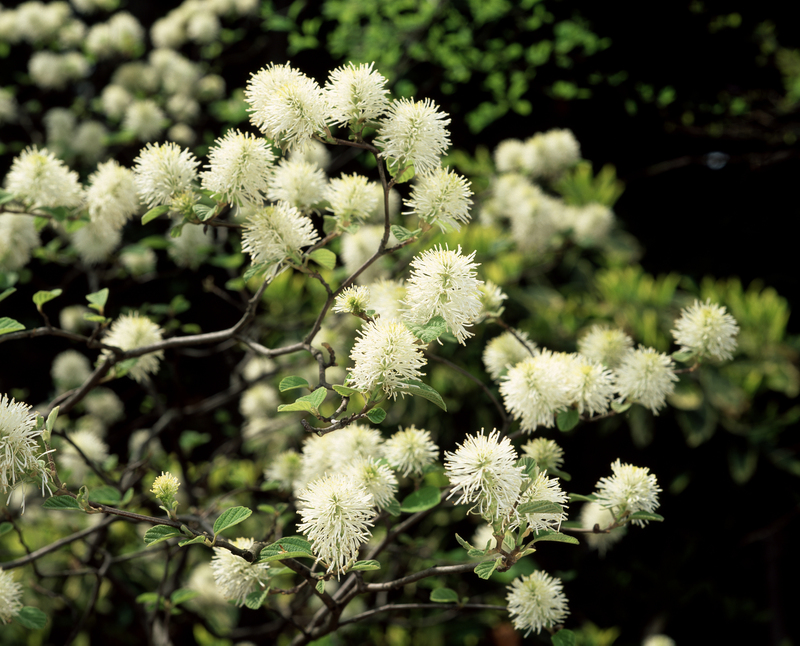Nature's Quiet Retreat: Zen Garden Ideas for Calm Spaces
Posted on 22/06/2025
Nature's Quiet Retreat: Zen Garden Ideas for Calm Spaces
Have you ever longed for a corner in your home where tranquility reigns supreme? A Zen garden or a Japanese rock garden is the perfect antidote to our fast-paced lives. These calm spaces are more than just beautiful landscaping--they're a bridge to serenity, mindfulness, and deeper connection with nature. In this comprehensive guide, we explore inspiring Zen garden ideas, from design elements to plant choices, so you can create your own peaceful sanctuary.
Understanding Zen Gardens: The Art of Tranquility
Originating in Japan, Zen gardens--also known as karesansui or dry landscape gardens--have been used for centuries by monks and meditation practitioners. Their minimalist aesthetics, carefully selected rocks, and raked sand or gravel patterns foster contemplation, calm, and a meditative atmosphere. Unlike other types of gardens, Zen garden spaces focus on symbolism rather than abundant vegetation or elaborate color schemes.
Key Features of Zen Gardens
- Minimalism: Few elements, each with a specific purpose
- Rocks & Gravel: Symbolizing mountains and water
- Natural Harmony: Asymmetry, simplicity, and space
- Plants: Moss, bamboo, and evergreen shrubs are typical
- Pathways: Meandering for contemplation
- Water Features: Optional, such as stone basins or small fountains

Zen Garden Design Principles for Calm Spaces
Transforming your space into a nature's quiet retreat is easier when you follow these essential design philosophies:
1. Simplicity and Balance
The core of any Zen-inspired garden is minimalism. Each element must serve a purpose, symbolizing an aspect of nature or philosophy. Empty space (known as ma) is just as important as the elements you include.
2. Natural Materials
Use natural stones, gravel, bamboo, and living plants to connect with the earth. Balance rough stones with fine sand or moss for heightened visual and tactile contrast.
3. Asymmetry and Irregularity
Nature is imperfect, and so should your Zen retreats be. Arrange stones in odd numbers or slightly off-center to echo the unpredictability of the natural world.
4. Symbolic Representation
Elements in a calm Zen garden stand in for larger natural forms: rocks for mountains, gravel for water, plants for forests. Let each piece tell a gentle, symbolic story.
Inspiring Zen Garden Ideas for Your Calm Space
Ready to start your own nature-inspired sanctuary? Here are some inspiring ideas and variations for indoor and outdoor Zen gardens:
1. Traditional Japanese Rock Garden
- Sand or gravel "sea": Rake into flowing patterns to symbolize water.
- Strategically placed rocks: These serve as "islands" or "mountains."
- Minimal planting: A patch of moss or a dwarf pine adds a touch of evergreen.
- Bamboo fence: Provides enclosure and privacy for your calm space.
2. Modern Minimalist Zen Garden
- Clean lines: Rectangular or geometric layouts for a contemporary feel.
- Concrete or slate accents: Mix with traditional pebbles for modern flair.
- Single specimen plant: Showcase a Japanese maple or a sculptural evergreen.
3. Miniature Indoor Zen Garden
- Tabletop trays: Fill with fine gravel, stones, and a few tiny succulents.
- Desktop calm: Raking the sand becomes a meditative ritual, perfect for the office.
- DIY personal touch: Add a miniature pagoda, bridge, or lantern.
4. Moss Garden Meditation Corner
- Moss "carpet": Soothing green moss underfoot or on stone surfaces.
- Zen seating: A flat stone or wooden bench for meditation or quiet reading.
5. Water Element Zen Retreat
- Stone basin or tsukubai: Symbolizes purity and invites mindful handwashing.
- Low-flow fountain: Gentle bubbling helps mask city noise and induces relaxation.
Essential Elements for a Calming Zen Garden Space
Use of Rocks and Gravel
Zen gardens are famed for their distinctive arrangements of stones. Each rock has a role: large ones act as focal points or "mountains," while smaller stones may represent islands or stepping stones. White gravel or sand is used to mimic the sea, often raked into tranquil wave or ripple patterns.
Pro tip: Choose stones with interesting textures and group them in irregular, natural arrangements for authenticity.
Selecting Plants for Serenity
- Moss: Lush, low, and easy to grow in shaded, moist areas.
- Bamboo: Perfect for screens or linear planting for privacy and subtle rustling sound.
- Japanese maples: Elegant foliage brings gentle color and striking shape.
- Evergreens: Pine, juniper, and boxwood provide year-round structure and tranquility.
Keep plant choices simple--too many types detract from the understated elegance of a true Zen retreat.
Water Features for Soothing Sound
Although classic Zen gardens typically avoid water, modern adaptations often incorporate gentle fountains or shallow stone basins. These provide soothing background sound and heighten the natural ambiance.
Natural Enclosures
- Bamboo fencing: Simple yet effective at creating intimacy.
- Trellis with climbing plants: Honeysuckle or wisteria can soften boundaries.
- Stone or wooden screens: Offer privacy and frame the view.
How to Design Your Own Zen Garden: Step-By-Step Guide
- Choose the Location: Pick a spot that feels private, whether it's a backyard corner, balcony, or even a tabletop for indoor Zen.
- Set the Boundaries: Outline the space with bamboo edging, stones, or low fencing.
- Select Main Features: Decide which elements--rocks, sand, moss, water--you want as focal points.
- Lay the Foundation: Spread a base layer of sand or gravel. Consider landscape fabric underneath to prevent weeds.
- Arrange Stones: Place your rocks first, following natural, asymmetrical groupings. Odd numbers are considered auspicious.
- Add Plant Life: Select a limited palette of moss, bamboo, or evergreens. Remember, less can be more.
- Incorporate Water (Optional): Install a simple fountain or stone basin for added sensory experience.
- Finishing Touches: Add pathways, a bench, or lanterns for function and ambiance.
- Rake the Gravel: Use a wooden rake to create flowing patterns in the "sea." This meditative act also keeps the garden fresh.
Maintaining Your Zen Retreat
Maintaining a Zen garden is less about heavy-duty gardening and more about mindful upkeep. Here's how:
- Regular raking: Refresh gravel patterns and remove fallen leaves or debris.
- Stone cleaning: Gently scrub stones to keep surfaces free of algae or moss build-up.
- Prune thoughtfully: Trim plants and moss to maintain simple shapes; avoid overgrowth.
- Weed management: Hand-pull weeds promptly; use landscape fabric or mulch to minimize invasion.
- Water maintenance: If you include water features, keep them clean and clear.
Benefits of Creating a Zen-Inspired Calm Space
The appeal of a Zen garden goes far beyond aesthetics. Here are some profound benefits of bringing nature's quiet retreat into your life:
- Reduces Stress: The peaceful arrangement and sensory elements promote relaxation and reduce anxiety.
- Mindfulness Practice: Tending the garden and raking sand serve as moving meditation, bringing your focus into the present.
- Enhances Outdoor (or Indoor) Living: Zen gardens become extensions of your living space--a perfect spot for yoga, reading, or reflection.
- Low Maintenance: These gardens require less time and upkeep than flower or vegetable plots.
- Year-Round Beauty: With evergreens, stones, and carefully selected materials, your retreat remains attractive through all seasons.
Personalizing Your Sacred Calm Space
The most successful Zen gardens are the ones that reflect your unique sense of peace and beauty. Here's how you can add personal touches:
- Symbols: Incorporate statues, Buddhist stupa, or pagodas for extra meaning.
- Custom raking patterns: Experiment with swirls, lines, or even simple shapes to match your mood or intention.
- Lighting: Use lanterns or subtle ground lights for nighttime contemplation.
- Art or Poetry: Weatherproof plaques with haiku or inspirational quotes elevate the spiritual atmosphere.
Whatever your style, always return to the core Zen principles: simplicity, harmony, and respect for nature.

Zen Garden Ideas for Small Spaces
You don't need a large yard to reap the benefits of a tranquil Zen garden. Here are innovative ideas for compact or urban living:
- Balcony Zen retreat: Use raised containers filled with gravel and a few stones; add a small bamboo fountain in the corner.
- Mini Zen bowls: Place tabletop sand gardens in your living room or on your desk.
- Vertical Zen wall: Mount a panel with pebbles, moss, and minimalist planters.
- Corner serenity spot: Dedicate a small area with a lantern, single stone, and sand to evoke a retreat atmosphere.
Conclusion: Invite Tranquility with Nature's Quiet Retreat
Zen gardens are timeless sanctuaries that offer harmony, mindfulness, and beauty, no matter the size or setting. By incorporating Zen garden ideas for calm spaces, you create a personal retreat where you can rest, reflect, and reconnect with the inner peace that nature inspires.
Start small, let nature guide your choices, and remember: in the art of Zen garden design, every rock, every pattern, and every patch of moss tells a story. Discover the power of simplicity, embrace the present moment, and transform any corner of your world into Nature's Quiet Retreat--your very own oasis of calm.
Latest Posts
Conquering Herb Gardening: A Complete Guide
Enchanting Gardens: Winter Care Techniques for Plants
A Greener Earth: Waste into Soil Revitalization

